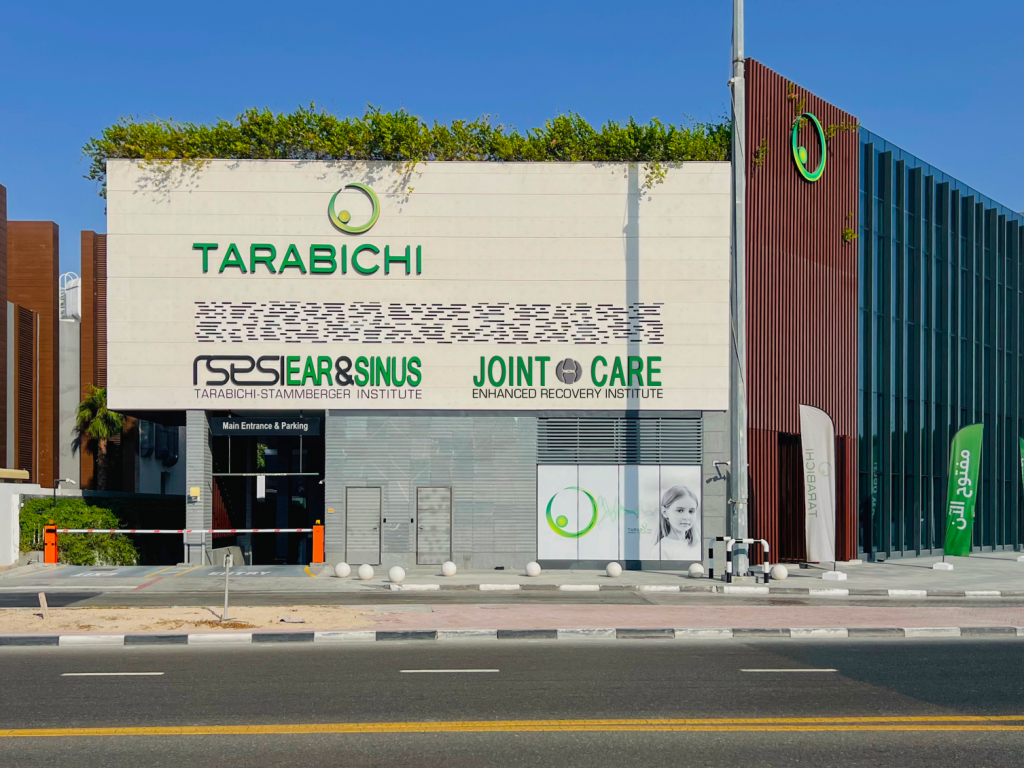Delaying Knee Replacement Surgery – What are the Risks?

Knee pain can be truly disabling, impacting not only your ability to move but also your overall mood.
For many individuals suffering from advanced knee osteoarthritis or joint degeneration, total knee replacement surgery offers a life-changing solution.
However, some people delay the procedure due to fear, misinformation, or uncertainty about recovery. However, delaying knee replacement may have significant physical, emotional, and functional risks.
Understanding the consequences of delay is crucial if you’re wondering, “Do I need a knee replacement?” or thinking about when to get one. At Tarabichi Joint Care, we focus on timely, evidence-based treatments to get our patients the best results.
About
Tarabichi Joint Care
At Tarabichi Joint Care, we are dedicated to offering world-class orthopedic care with a focus on joint health and comprehensive rehabilitation. Founded by the renowned Dr. Samih Tarabichi, a pioneer in joint replacement in Dubai, our center stands as a beacon of excellence in the Middle East and beyond. With cutting-edge technologies, a patient-centered approach, and a team of highly specialized professionals, we strive to enhance the quality of life for individuals suffering from joint-related conditions.
Understanding Knee Replacement Surgery
Knee replacement—also known as knee arthroplasty—is a surgical procedure that replaces damaged or worn parts of the knee joint with artificial components.
It’s most often suggested for individuals experiencing severe knee osteoarthritis, rheumatoid arthritis, or a traumatic injury that restricts their daily life and causes ongoing pain. This surgery has a high success rate, and most patients experience improved mobility, reduced pain, and a better quality of life after recovery.
Why People Delay Knee Replacement?
There are several reasons patients delaying knee replacement:
- Fear of surgery or anesthesia
- Concerns about pain or complications
- Uncertainty about life after knee replacement
- Misconceptions about age or eligibility
- Hoping the condition will improve with time or conservative therapies
While these concerns are valid, the risks of delaying surgery often outweigh the perceived benefits.
What are the Risks of Delaying Knee Replacement Surgery?
1. Progressive joint damage: Delaying knee replacement allows arthritis or injury-related degeneration to worsen. When cartilage erodes, it allows bones to make contact, which can worsen inflammation and cause joint deformity.
Over time, this can result in reduced mobility and more complex surgical repair, making it harder to achieve optimal outcomes.
2. Muscle wasting and joint stiffness: When knee pain leads to reduced activity, muscles around the knee begin to weaken.
Prolonged disuse may cause muscle atrophy, which negatively impacts your post-operative recovery and delays rehabilitation. Joint stiffness may also set in, making bending or straightening the knee harder, even after surgery.
3. Decline in physical health: Persistent pain and limited mobility can trap you in a sedentary lifestyle, potentially leading to weight gain, heart disease, diabetes, and poor circulation.
Studies have shown that people who delay necessary joint replacement often develop additional comorbidities, increasing the risk of complications during and after surgery.
4. Worsening mental health: Living with chronic pain can impact mental well-being. Depression, anxiety, irritability, and sleep disturbances are commonly reported by patients who delay knee replacement.
Losing the ability to engage in daily life or hobbies often results in both social isolation and a diminished quality of life.
5. More complex surgery later: If the knee deteriorates further, the knee replacement procedure may become more complicated.
Advanced deformities, severe bone loss, or weakened muscles may require special implants or surgical techniques, which can increase surgical time and recovery duration.
6. Longer rehabilitation: The better your physical condition before surgery, the faster and smoother your recovery tends to be. Waiting too long may require extended physical therapy post-surgery due to muscle weakness or mobility limitations.
7. Higher risk of falls: A weak and unstable knee increases the risk of falls, which may lead to further injury, including fractures that could complicate or even postpone the possibility of a knee replacement entirely.
How to Manage Knee Pain While Waiting for Surgery?
If you are waiting for surgery due to scheduling, insurance, or medical clearance, there are ways to manage knee pain temporarily:
- Physical therapy: Strengthening exercises can improve joint support and mobility.
- Weight management: Reducing your weight, even slightly, can lessen the strain on your knee.
- Pain relief medications: NSAIDs and acetaminophen may provide temporary relief.
- Bracing or walking aids: These can provide support and reduce strain.
- Injections: Corticosteroid or hyaluronic acid injections may reduce inflammation for short periods.
- Heat and cold therapy: These home remedies help alleviate pain and stiffness.
However, these are not long-term solutions. If conservative management fails to control your symptoms, it may be time to consider the timing of your knee replacement seriously.
When to Get a Knee Replacement?
The ideal time for knee replacement varies from person to person, but here are a few key indicators:
- Daily activities like walking, climbing stairs, or standing are severely limited.
- Pain persists despite medications and physical therapy.
- Sleep is disturbed due to knee pain.
- You rely on support aids like canes or walkers.
- Imaging shows advanced joint damage.
Consulting an orthopedic surgeon at Tarabichi Joint Care can help you determine if now is the right time.
Dr Mohamed Elfekky, Director Tarabichi Joint Care Enhanced Recovery Institute, has introduced a new technique to freeze the pain nerves for the 6 months needed to complete this recovery journey without pain.
What is Life After Knee Replacement?
Many people wonder what life after knee replacement looks like. The good news is that with modern surgical techniques and a dedicated rehabilitation plan, most patients return to a more active, pain-free lifestyle. Here’s what to expect:
- Pain relief: Significant reduction in joint pain within weeks.
- Improved mobility: Most regain the ability to walk, climb stairs, and enjoy low-impact activities.
- Durability: You can expect modern implants to last at least 15 to 20 years, and potentially longer.
- Better mental health: Enhanced mobility and independence improve emotional well-being.
Why Choose Tarabichi Joint Care for Best Knee Replacement Surgery?
Led by renowned orthopedic specialists, Tarabichi Joint Care is committed to offering the best knee replacement surgery in the region. Our advanced techniques, personalized rehabilitation programs, and patient-centered approach ensure high success rates and faster recovery.
We understand that deciding on surgery can feel overwhelming. That’s why we provide comprehensive support—from diagnosis to recovery—to help you move confidently toward a pain-free life.
While delaying knee replacement might offer short-term convenience, the potential long-term risks are considerable. The more you wait, the more the joint deteriorates, increasing the difficulty of surgery and prolonging recovery.
If you constantly ask, “Do I need a knee replacement?” or struggle with unmanageable knee pain, it’s time to consult an orthopedic expert.
Take control of your mobility and life by scheduling a consultation at Tarabichi Joint Care today. The road to recovery starts with the right decision at the right time.

Get Your Appointment For Expert Joint Care
At Tarabichi Joint Care, we are dedicated to providing exceptional orthopedic treatment in Dubai. We specialize in the Enhanced Recovery Program, which emphasizes on quicker healing post-surgery. If you’re considering knee replacement surgery, let us help you on your journey to pain-free living.





